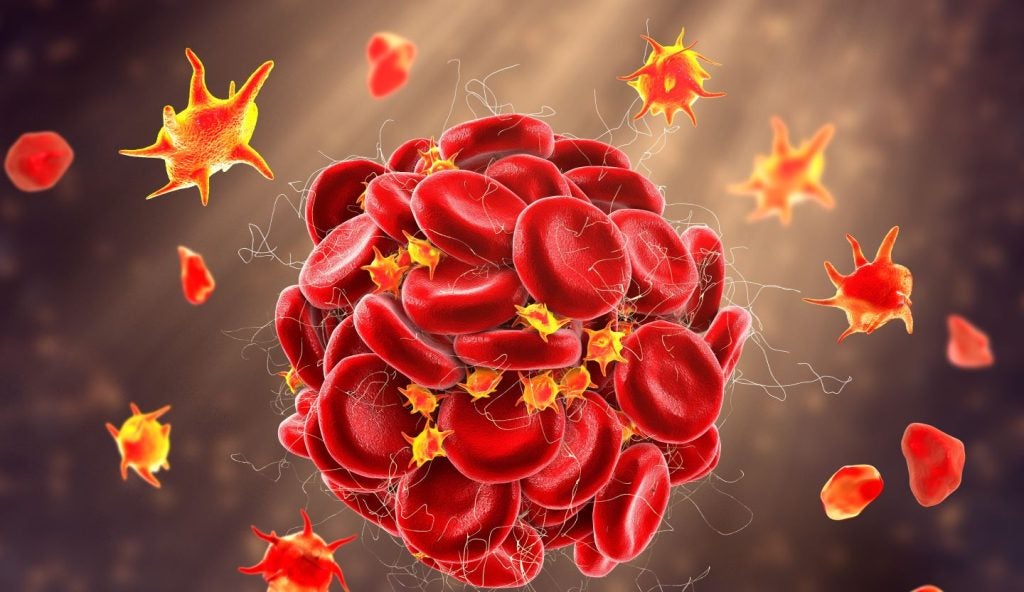Sirius Therapeutics has dosed the first subject in a Phase I clinical trial of SRSD107 for preventing and treating thromboembolic disorders.
The latest development comes after the company filed an application in Australia to launch the trial of SRSD107 to treat and prevent thromboembolic ailments.
A double-stranded small interfering ribonucleic acid (siRNA) therapy, SRSD107 is designed to hinder coagulation factor XI (FXI) protein expression, thereby cutting the risk of blood clots with infrequent dosing.
SRSD107's mechanism of action involves targeting FXI mRNA, a critical component in the intrinsic coagulation pathway.
By blocking this pathway, the drug aims to exert anticoagulant and anti-thrombotic effects.
This therapy has been developed with the potential for once or twice-a-year dosing, which could significantly improve patient compliance and outcomes.
The first-in-human trial will assess the tolerability, safety, pharmacokinetics, and pharmacodynamics of SRSD107.
It will analyse both single ascending and multiple ascending doses and is being conducted with healthy participants in Australia.
This new study represents the second clinical candidate from Sirius' portfolio to enter clinical trials, with the first being SRSD101, currently in trials in China for dyslipidemia.
Sirius, established in 2021, focuses on the discovery and development of next-generation siRNA therapies for cardiovascular ailments.
The company recently raised $100m in a funding round led by investors such as Creacion Ventures, OrbiMed, Hankang Capital and Delos Capital among others.
Sirius Therapeutics CEO Dr Qunsheng Ji said: “This trial is based on in vivo studies that demonstrated a nearly 100% reduction of FXI levels for up to six months, without bleeding events, after a single subcutaneous dose.
“The trial will provide an opportunity to evaluate SRSD107’s potential as a differentiated therapeutic for these common disorders globally.”









